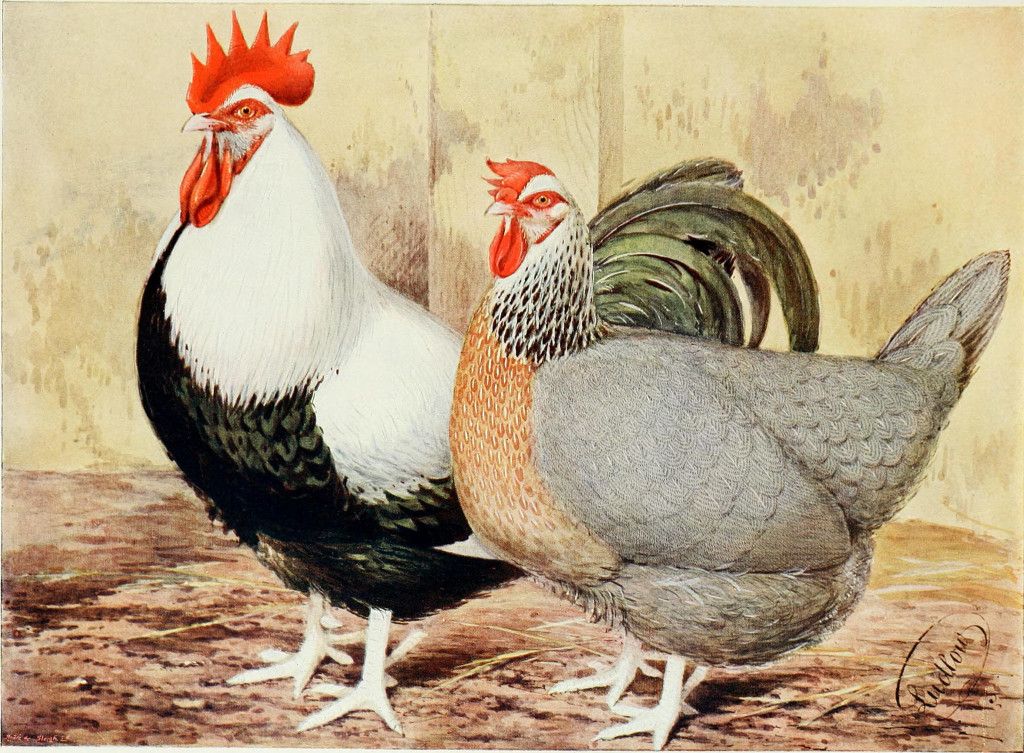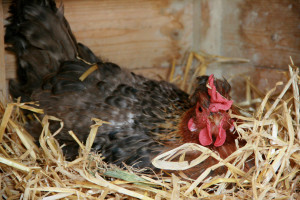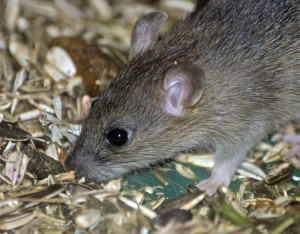UCP Episode 058: Listener Q & A Session #5
Description
It is time again for another session of Urban Chicken Podcast Listeners’ questions and answers. This Q and A session we consider and discuss ISA Brown chickens, a rooster who is acting like a hen, issues with spilt feed in the coop, identify a mystery breed hen, and hear about another crowing hen!
A few weeks ago I received several questions from Urban Chicken Podcast listener Ahmad Eido in a couple different emails. Ahmad is relatively new to keeping backyard chickens – most of his flock being rescue birds from his local humane society animal shelter. Here are the first two questions Ahmad posed in his initial email:
Hi Jen,
I hope all your flock babies are doing well. I have 2 questions for you.
1.) I have 6 hens and one rooster … they are about 8 months old [and] just starting to lay eggs. I went in the coop today to check on the water and freshen their bedding and … as i was in there, the rooster “Rocko” ([by the way] I love this bird so much) jumped in the laying boxes next to me and starting clucking like a laying hen. He then laid in the middle and looked at me like a broody hen. What do you think that means? Is that a normal occurrence?2.) My flock does not free range as of yet – I have a large pen attached to my coop. … I went to check on [my flock] and give them some treats …. and I noticed that the 30lb metal feeder that I use is almost empty, even though I filled most of it 2 days ago. All the feed is on the ground around the feeder. My chickens have never done that since I [have] had them. As I was investigating the site, I noticed that there was blood on the walls of the feeder. I checked all my flock one at a time and none of them has any injuries … and there no evidence of a predator or any forced entry to the pen. What do you think happened? I’m very concerned.
Thank you so much for all your great podcast, keep up the good work.
Your Avid Listener – Ahmad
These are both rather unusual questions and my answers are more experiential and anecdotal in nature than scientifically based. It is difficult, if not impossible to give an absolute answer to either of these inquiries.
ROOSTER ACTING LIKE A BROODY HEN
Let’s start with issue of the rooster behaving like a broody hen. According to Ahmad, Rocko the rooster one day decides to strangely climb into a nesting box, cluck like a hen
and pretend to be broody. Yup – that is some pretty odd behavior for a rooster. However, I suspect the cause of this rooster’s nuttiness is not as enigmatic as one might initially assume.
All animals, chickens included, are as individualized and full of unique personalities as humans. Consider how bizarre some humans act from time to time. Often there is not a reasonable explanation for their behavior – perhaps the individual was just feeling a bit silly or kookie that day or perhaps acting in such a way for their own amusement. Anyone who has ever owned a regular household pet would be able to recount how these dogs or cats have acted playfully and silly just for fun. Arguably, chickens are no different.
Here is a similar example from my own life. My sister owns a Black Copper Marans rooster named Napoleon. Recently, when one of the hens was laying eggs and crying out her “egg-song,” Napoleon began to mimic her. He was not clearly crowing – he was very carefully echoing this hen’s egg-song. Why was Napoleon sing a hen’s song? Truthfully, I have no idea. I suspect he was doing it for his own amusement or perhaps out of some deep-seeded rooster neurosis. However, Napoleon is not the only rooster to take up mimicking the “egg-song.”
Rooster Singing Hen’s Egg-Song:
<iframe src="https://www.youtube.com/embed/-_fHZGICBjw" width="420" height="315" frameborder="0" allowfullscreen="allowfullscreen"></iframe>
Napoleon has not demonstrated any other female like behavior. If Rocko has not done anything more than act a little crazy that one day, I would not read too much into it. However, should Rocko begin to regularly behave as though he were a hen, that would be something different.
There are a few reports of roosters sex-reversing into hens, though those reports are not generally substantiated. More commonly are reports and studies on various species of animals (several of which are birds) exhibiting “homosexual” behaviors in the wild. There are reports of pairs of male birds partnering up and running female birds off of their nests to take-over the care and hatching of eggs. This is not likely to be the issue with Rocko – he was probably just being playful around with his owner.
If Rocko continues to behave like a hen or if any other Urban Chicken Podcast listener’s roosters (or hens) are behaving like the opposite sex, please let me know. I am conducting an informal study on sex-reversed chickens and looking to see if there is any correlation with the rise of rooster-free backyard flocks with that phenomenon.
CAUSE OF MISSING/SPILT FEED IN THE COOP
The second question Ahmad asked was to help him find the source of missing and spilt feed in his coop. This is sort of a “whodunnit” mystery question. Since I have never visited Ahmad’s coop or seen his flock in action, I can only make an educated guess at the cause of his feed troubles.
The evidence list of facts in this case to consider are as follows: 1) an unusual amount of feed was consumed; 2) though it is generally common for chickens to scratch in their feeders and waste feed, this is not a behavior his flock has ever shown; 3) there was a smear of blood inside the metal feeder, but none of his birds were injured when he checked each of them individually, and 4) there was no signs of a forced entry into the coop.
Assuming that all of the facts provided by Ahmad were correct and there is no additional omitted evidence the most likely answer is that his own flock is guilty for this mess. Chickens are notorious about spilling their feed and could have done so on this occasion for the first time. Moreover, it is highly possible that the injury that cause the blood smear was simply overlooked.
However, if flock did not cause this mess in Ahmad’s coop and an outside culprit is to blame, then the likely offender was either a rat or mouse (or a similar rodent). It is very common for open and available feed in a coop to attract entrepreneurial vermin. Rodents have voracious appetites and can eat and stash remarkable amounts of food. Additionall








